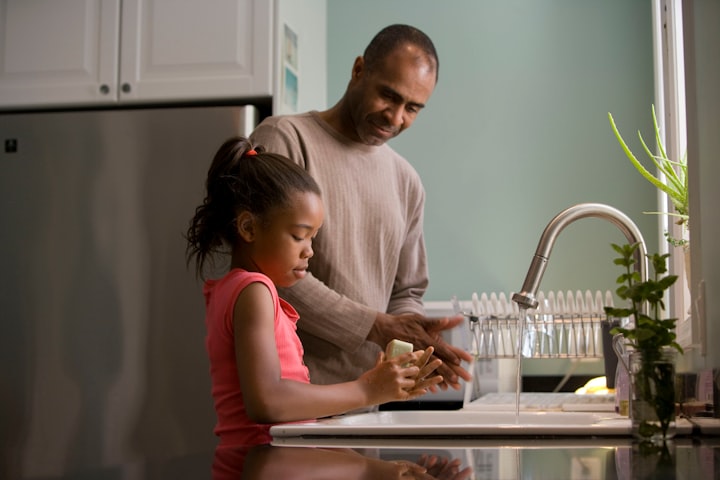
Tantrums, meltdowns, screaming, yelling. We have a lot of names to label when our young kids get upset. I prefer to call them meltdowns; tantrums has a negative connotation and I have learned the mindset you view your child’s behaviour through affects how you react. If you assume negative intent, you will be more harsh, if you see a child doing the best they can, you’ll respond with empathy.
Many people outside gentle parenting view meltdowns as manipulation. They are not. Your child is overwhelmed by emotion, and it can often be over things adults consider minor. But for a 2 or even a 5-year-old, with a brain still developing logic and control, they get overwhelmed easily. But many adults become overwhelmed by emotions too. We all experience overwhelm occasionally.
My son was nine months when he started having meltdowns. I don’t recall my first ever having one, but I could have rose-colored glasses on with her. She was my first and I was a young mom.
People told me it wasn’t possible for babies to have meltdowns. But my crying child on the floor suggested it wasn’t only possible, it was happening. The early meltdowns were easy to fix, usually being held too much caused overstimulation and he needed to chill by himself. He also hated having a dirty diaper for any amount of time, but he also didn’t particularly enjoy laying to have them changed either.
As he got older, emotion overwhelmed him quite easily. Hangry was a real problem after he weaned. His constant nursing kept him at a steady level of full, I started setting timers to keep him fed. Any hungry plus emotional demand equalled extreme upset.
One day he was rolling around on the floor upset, I can’t recall the circumstances, but I called my mother desperate for advice. She told me to ignore him. I’d been ignoring his upset, because I couldn’t calm him, but leaving my very in distress child alone hurt my heart, plus he might hurt himself.
I turned to the internet and searched for better, gentler ways to deal with tantrums. I found a positive parenting blog (I can’t find it again today). It led me to Dr. Laura Markham’s AhaParenting website, and soon after parenting groups on Facebook gave me more direction. Empathy, validation, choices, choosing my battles wisely, age appropriate expectations, and lessening demands when he may be hungry or tired.
Mostly, meltdown management is about avoiding them. What? I know!! But little things like making your house a yes space your child can explore, not being out if your child is tired or hungry. And little changes in your words can help. For example, letting your child know you hear their wants. And even giving in wish.
Kid: I want that toy
Parent: That’s a cool toy. I wish we could have 50 of them. We could give one to all your friends.
Anything silly or that makes kids laugh will release tension and may avoid a meltdown. And avoid setting unnecessary limits.
I read once that kids having a meltdown is their way of getting us to feel the way they feel. And it’s hard not to jump into their feelings with them, especially if we had our emotions stifled or punished when we were young. If we were punished for upset, we will be uncomfortable with our children’s upset, give yourself empathy for the discomfort.
There are a few things we can do to help young kids find their calm.
First, calm yourself. There are two mantras I use to calm myself. “This is not an emergency” and “my child isn’t giving me a hard time, they are having a hard time” can help us change our view of those upsets.
It is okay that your child is upset, even in public. People may stare and judge, but they cannot hurt you. If there are people around you being ungentle, like family, move somewhere quiet or request space gently but firmly.
Respond with empathy and use fewer words, let your child know you hear they’re upset.
“You are upset about hearing no.” or “You are mad when I said it was time to go.”
Avoid logic or explaining your reasoning. The younger the child the less they can access logic, but once we hit the overwhelm point, kids can’t access their logic anymore. Dan Siegel has a good analogy for our logic and emotional brain you can watch his video here
Then sit with them through the upset, let them know you are with them and you understand. Some kids will calm quickly, some need longer to express their upset. Some kids will request space and that’s okay to set away but still within earshot or sight. And some will need hugs and cuddles right away.
If they are lashing out, block or step out of reach and redirect the energy. Give them a safe item to hit, pound on play dough, stomp their feet, draw angry pictures.
After the upset, retelling the story helps integrate the emotional and logical parts of the brain.
Want to be a better parent? Get my gentle parent's guide.





Comments
There are no comments for this story
Be the first to respond and start the conversation.